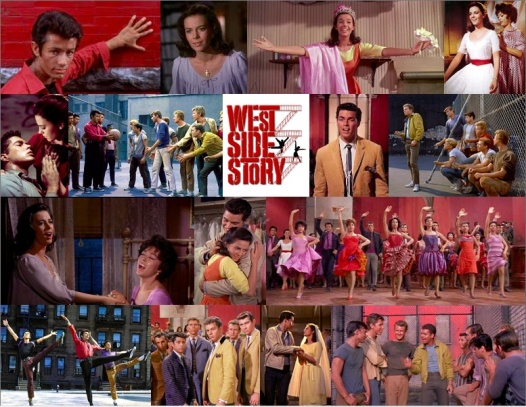by Sam Juliano
The film of West Side Story produces the same brilliant effect as the play. This does not mean that the stage show has merely been duplicated; on the contrary, to get the same effect, it had to be effectively translated into a second medium. Because of the quality of the original materials and of the translation, the result is the best film musical ever made. -Stanley Kauffmann, The New Republic
West Side Story, a cultural institution with a legacy to match any American film in the musical genre or otherwise, is also a curiosity. Though it originally ran for 732 performances on Broadway starting in 1957 -an impressive number by any barometer – it did not reach the zenith of theatrical and musical fulfillment until it was transferred to the screen four year later. The original show is now seen as much more than a classic musical, indeed one of the very few works that fundamentally changed the form of the musical. One of the greatest of the influences was in the theatricality of its presentation – the seamlessness and cinematic flow of its staging and the integration of script, song, dance and set. The operatic score by Leonard Bernstein, with book and lyrics from Stephen Sondheim is arguably one of the two greatest ever written for the musical theater – the other is Jerome Kern and Oscar Hammerstein II’s Show Boat, which also represented a radical departure in musical storytelling. Almost every song from that score is now considered a standard and most of them are regularly performed in concerts, nightclubs and updated recordings. Cast albums have been produced all over the world in places like the United Kingdom, Australia, Japan, Sweden and Italy among others, and in various styles, instrumentation and interpretations. The play continues to be mounted frequently in high schools, universities, community and regional theaters, and in successful revivals around the globe. The libretto has been translated in over 26 languages, and in high school English classes it has been taught as a companion piece to Shakespeare’s Romeo and Juliet, the timeless romantic work upon which it was based. (more…)























 Click on names for archives
Writers/Founders
Click on names for archives
Writers/Founders